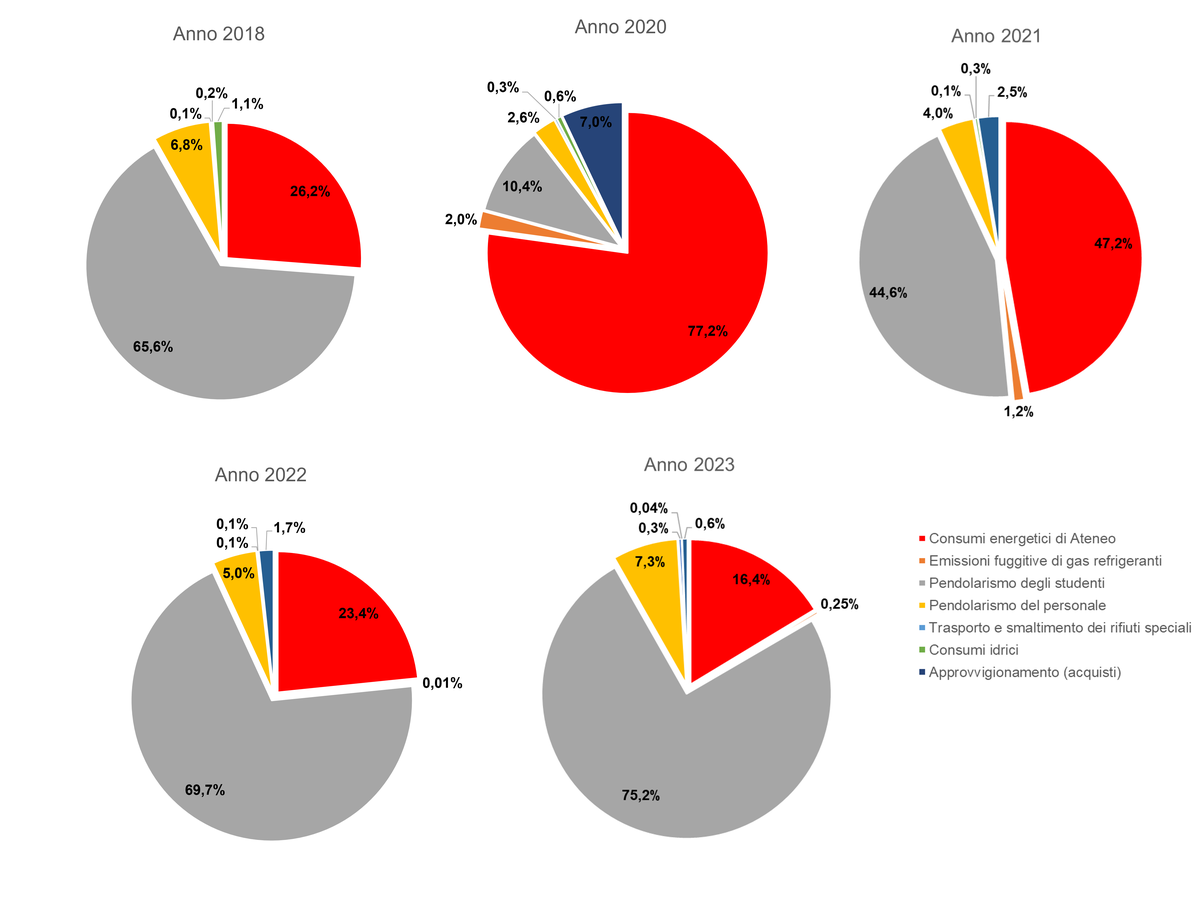Inventory of greenhouse gas emissions generated by the activities of the University of Bologna

In order to fulfil Goal 13 of the United Nations 2030 Agenda "Promote action at all levels to combat climate change", the first fundamental action is to quantify and analyse the carbon footprint, i.e. the greenhouse gas emissions generated by the University's activities during each year. This inventory is the starting point for all future emission reduction, mitigation and adaptation actions.
Our University is pursuing this commitment within Goal 50 of the University of Bologna's Strategic Plan 2022-2027, thanks to the Action "Introducing constant monitoring of the Alma Mater's environmental footprint".
In order to monitor, inventory and assess greenhouse gas emissions, in 2021 the University of Bologna adopted a new Carbon Footprint calculation methodology, developed according to the ISO 14064 standard.
The emissions inventory includes three areas of application (Scopes):

University Carbon footprint

Greenhouse gas emissions by activity
Greenhouse Gas Emissions from activities
The sharp reduction in overall emissions between the years 2018 (55,388 t CO2eq) and 2020 (16,467 t CO2eq) can be attributed to containment measures taken in response to the Covid-19 health emergency: the introduction of remote work for staff and online classes for students led to a significant reduction in commuting between home and university.
Emissions for the year 2021, due to the continuation of certain lockdown periods, remote work, and online classes, although increased, have not yet returned to pre-pandemic levels.
The home-university mobility of the university community has a very significant impact in terms of emissions (scope 3), which increased in 2022 and 2023 due to the fact that almost all activities have reverted to being carried out in presence, moving away from the emergency modes thought of during the Covid-19 pandemic.
Therefore, the commuting patterns of the university community have a significant impact in terms of emissions. To address this issue, as part of the Sustainable Multicampus Project, Alma Mater supports various measures for sustainable mobility:
